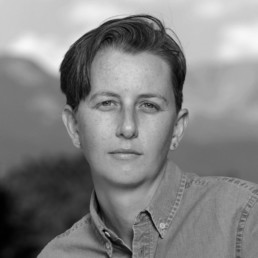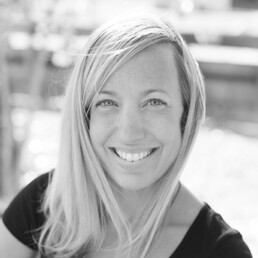We’re Taking A Stance—And You Should Too
Your choices reflect your values. Super Tuesday has come and gone, and the “big election day” isn’t until November, but voting is something we all do day in and day out.
We “vote every day” with the choices we make and the businesses we support, work for, and work with.
In today’s world of social media and internet connectivity, people are making their choices more public than ever. Whether they realize it or not, everyone’s readily advertising their values (or what they want their values to appear to be). They share where they’re shopping, what products they buy, their political opinions, what events they attend, and even what and where they eat for dinner.
You can learn a lot about a person and what they stand for without ever even speaking to them.
Take the time to think about your choices. What do you stand for?
We chose to become a B Corp because we want to be part of the global movement that’s showing the Business Can Be a Force For Good. We have a responsibility to protect our planet, our people, and our profits, and we’ve based our business on this triple bottom line.
We’re looking at investing differently. It’s our mission to provide investment options for people at all income levels, not just for the wealthy. And we’re showing that investments aren’t just about making money, but also about funding causes that we care about.
Whether it’s supporting causes like climate change, poverty alleviation, gender equality, clean water, or alternative power that lights you up, there are ways that you can make a positive impact.
By supporting B Corps, you’re using your voice and your vote to take a stance—to say that you care about how businesses impact the environment, their workers, and their communities. You’re voting to support businesses that have pledged to consider their impact on everyone that they touch. Every day is election day.
We’re taking a stance–we want a better, sustainable future for generations to come.
Are you with us?
Are there causes that you’re passionate about? How do you want to change the world? We want to hear from you! Contact us and share your favorite causes and why you choose to support B Corps.
Lindsay Hope is a copywriter and marketing strategist with CoPeace. As a forward-thinking holding company, CoPeace is building a portfolio of carefully selected for-profit companies with measurable social and environmental impact. To learn more about impact investing, check out CoPeace’s Intro to Impact Investing.
B Corps Reflect the True Cost of Business and Reward Stakeholders

Since the very beginnings of commerce, businesses strived to earn superior financial returns by maximizing revenues and minimizing costs. Revenue generation by satisfying market demand is straightforward for most businesses. However, the cost side of the profit equation is subject to a variety of ever-changing expense factors such as labor, raw materials, facilities, utilities, legal and environmental compliance, and overhead. In the most basic terms, businesses with the highest net incomes and resultant cash flows (total revenue minus total expense) are rewarded by investors with the highest market valuations for their reliability in generating consistent positive operating results. Up until very recently, most businesses viewed their missions to maximize shareholder value rather than stakeholder value.
The “true cost” of doing business considers all stakeholders, not just the company shareholders. Question: what true costs are missing from the profit equation in a maximize shareholder value company strategy?
Answer: the cost of negative impact on society and the environment.
If a company solely pursues maximizing shareholder value, such companies do not fully bear the costs of negative externalities resulting from the production of goods and services such as air pollution, water pollution, noise pollution, excessive carbon dioxide output, unfair or illegal labor practices, and traffic congestion. These costs are often borne disproportionately by society as a whole and not reflected in the underlying cost structure of individual businesses. Government regulatory practices vary widely around the globe in an effort to shift some of these costs back to the offending companies; however, society as a whole has shouldered the majority of the financial, environmental and social burden.
What is the solution for investors? Invest in companies which take all stakeholders into account. Such companies can take many forms but one way to positively screen for companies who care and want to do good is to choose to invest in Certified B Corporations.
Certified B Corporations are a new kind of business that balances purpose and profit. They are legally required to consider the impact of their decisions on their workers, customers, suppliers, community, and the environment. This is a community of leaders, driving a global movement of people using business as a force for good.
Each of us has the opportunity to choose which companies we invest in for a better future for ourselves, family, friends, and people we don’t know or will never meet. B Corporations are required to meet the highest standards with respect to verifiable social and environmental impact, transparency, and accountability. As investors and consumers, we can make positive choices on a daily basis to engage with businesses who share the vision of doing business with a balance of profit and purpose. B Corporations provide a means for everyone to make positive investment and consumption choices that take all stakeholders into consideration.
Ed Tepper is the Chief Operating Officer and Chief Finance Officer at CoPeace. As a forward-thinking holding company, CoPeace is building a portfolio of carefully selected for-profit companies with measurable social and environmental impact. To learn more about impact investing, check out CoPeace’s Intro to Impact Investing.
Sarah Johnston | Advisory Council
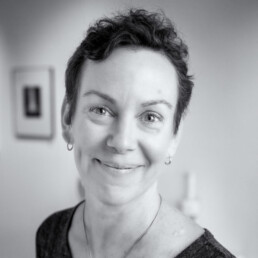
Sarah Johnston
Sarah graduated from Carleton College with a degree in Political Science and worked for a Japanese American joint venture company in the automotive industry and in Japan as a community liaison in prefectural government before committing to living in Kentucky with her husband.
She is the co-owner of Ellis Walker Gallery, an art gallery that focuses on building relationships between artists with ties to south central Kentucky and Western Kentucky University, as well as providing more opportunities for engagement and dialogue between students, artists, and the community at large.
Sarah currently works as an End of Life Doula in South Central Kentucky and the Nashville area—helping clients navigate the end stages of life, creating partnerships with hospitals and hospice agencies to address non medical aspects of palliative care, and leading community discussions around designing a more peaceful end of life journey. Sarah is passionate about building more inclusive communities on all levels.
Graeme Sharpe, J.D. | Advisory Council
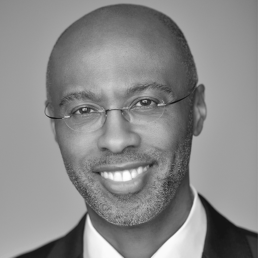
Graeme Sharpe, J.D.
An employment lawyer for 20 years, Graeme began his career with the prestigious law firm, Orrick, Herrington and Sutcliffe. He then embarked upon an employment law practice, which was the first of its kind in the state of California. Graeme conducted his own jury trials before moving in-house with the firm. He is currently an employment lawyer and head of Employee Relations at Hyundai Capital where he oversees all investigations, complaints, discipline and terminations.
Betsy Poell | Advisory Council
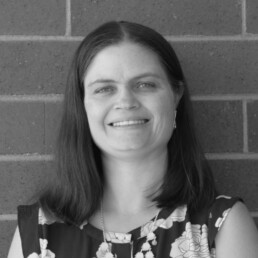
Betsy Poell
A Colorado native, Betsy graduated from University of Notre Dame with a degree in management and a minor in theology. She was a transfer agent at Oppenheimer Funds before moving to the Derivatives and Senior Bank Loan settlement desk and acquired by Brown Brothers Harriman. Betsy currently spends time with her little boys, runs the Pottle Family Foundation, and works with a small family investment company.
Robert Aliota | Advisory Council
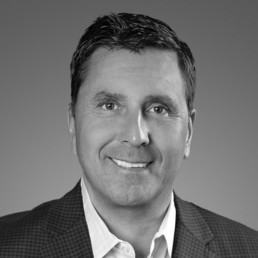
Robert Aliota
After a successful career in corporate sales and management roles, Robert started his engineered parts business in his garage at the age of 29. Twenty-two years later, having developed business in 48 states and five countries around the globe, he sold the business to a $4 billion world-class manufacturing company with locations in 50 countries. Robert has been featured in Business Week SmallBiz Magazine and BUSINESSdigest for his partnership approach to business and creating strategic alliance.Robert is committed to supporting a business model built on trust, ethics, integrity, and the development of people. Robert is a graduate of North Carolina State University and has done extensive post-graduate studies related to value creation in the marketplace. In addition, he has completed Gallup University’s Strengths-Based Training, which focuses on leveraging your natural strengths in business and life. Robert has a passion for helping small businesses grow and understands, first-hand, the challenges, risks and rewards associated with small business ownership.
Edmund Pendleton | Advisory Council

Edmund Pendleton
As founder and co-founder of numerous business ventures, primarily in high-tech markets, Edmund currently serves as a board member for both Alumni Fidelity and Affinity Lab. In addition, he is a member of the investment advisory board for the GAP Technology Fund.
Edmund is also an adjunct professor of innovation and entrepreneurship at Georgetown University’s McDonough School of Business. As director of MTech VentureAccelerator at the University of Maryland, he helps develop companies founded by students, staff, and faculty through rigorous customer development and business model validation.
Meryl Selig | Advisory Council
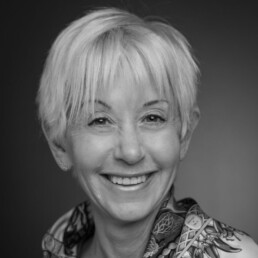
Meryl Selig
Prior to moving to Woodside, California sixteen years ago, Meryl enjoyed an international and Chicago-based career in advertising and marketing communications. Since arriving here, she has redirected her energies towards voluntary service in our community; most significantly at the Palo Alto VA Hospice (since 2006) and in guest services at the Stanford Cancer Center (since 2008). Meryl also serves on the Cancer Council, the development board for the Stanford Cancer Institute; the Patient Family Advisory Council at Stanford Cancer Center, focusing on improving patient experience during and after treatment.
Meryl has led home-build teams to Vietnam for Habitat for Humanity (Greater San Francisco) and supports LifeMoves (local shelter network); Planned Parenthood Mar Monte and other community welfare organizations. This fall, she is beginning studies with Columbia University’s Master of Science in Bioethics.
Meryl earned her bachelor’s and master’s degrees at the University of Pennsylvania, as well as a master’s in International Management at the Thunderbird School in Arizona. She has always been interested in people, how they organize communities, communicate, and what they value.
Meryl and Rob Selig are active philanthropists, with ongoing commitments at Colorado College, Stanford University, and numerous non-profits dedicated to reducing inequities in health care, education, housing and personal well-being. Life here is full of gifts and opportunities. My goal is to help others partake of this abundance.
Dez Stone Menendez | Board of Directors
